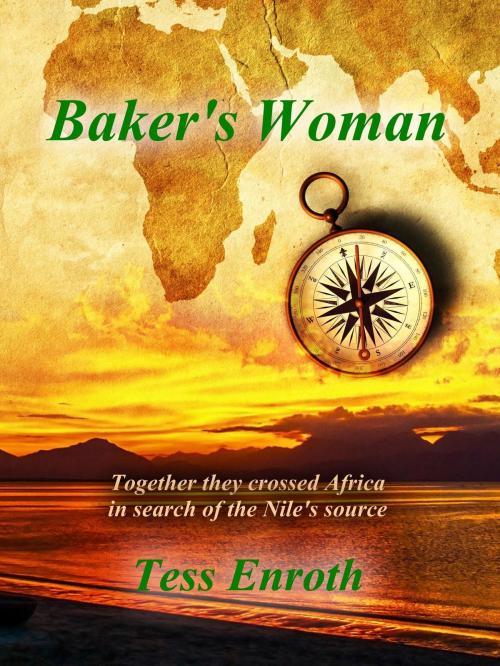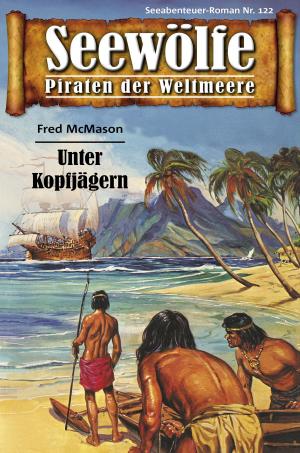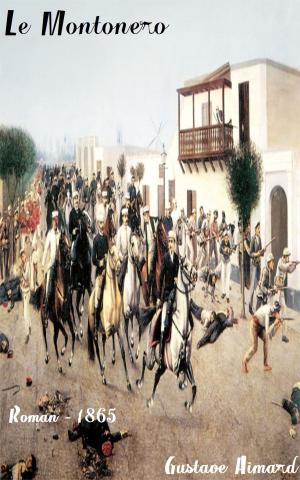| Author: | Tess Enroth | ISBN: | 9781311241139 |
| Publisher: | Tess Enroth | Publication: | December 28, 2015 |
| Imprint: | Smashwords Edition | Language: | English |
| Author: | Tess Enroth |
| ISBN: | 9781311241139 |
| Publisher: | Tess Enroth |
| Publication: | December 28, 2015 |
| Imprint: | Smashwords Edition |
| Language: | English |
Baker’s Woman opens in 1859 Bulgaria, the western edge of the Ottoman Empire. Refugee white girls are captured and offered for sale. Englishman Sam Baker is touring Eastern Europe to introduce an Indian Prince to Continental society and some boar hunting in the forests. With the prince he attends a slave sale, and out-bids pashas to save one delicate waif. Once back at his lodgings he realizes he has no idea what to do with the girl. The prince’s companion, a wealthy independent European Countess, takes young Florence in hand for clothing, an introduction to social customs, womanly advice and a large dose of kindness.
Sam employs tutors to prepare Florence for employment as a governess. She speaks German and Hungarian, and now learns English and French. But reluctant to give her up to service, Sam takes a job to oversee the extension of the trans-European railway. He rents a house on the Black Sea where Florence can continue her studies. Florence waits to see what is expected of her and Sam confesses his love and asks if she can love him. They spend an idyllic summer. He tells her his dreams of locating the headwaters of the Nile. She declares she will follow him anywhere.
They sail for Constantinople where Sam buys identity papers for his “wife”. From there they go on to Alexandria and Cairo. Sam arranges supplies, barges, and crew. In April 1861 they begin their journey up the Nile. At the cataracts they must leave the river and take to camels, following a trade route across the eastern Nubian desert. Florence is ill; Sam revises plans and they stay awhile in Abyssinia’s highlands. In the spring, astride Arabian horses, they arrive at the Blue Nile and follow it west to Khartoum. On boats they travel south to Gondokoro. It is a dismal trading camp, but Khartoum’s British consul is there awaiting explorers Speke and Grant. Sam meets with the Consul and gives him papers to assure Florence’s support should he die. The Consul asks Sam why he has not married her, and Sam, says opportunities have passed. The Consul reminds Sam that he is the British Law. With relief and a full heart, Sam then proposes and he and Florence are married. Speke and Grant straggle in. They reached Lake Victoria, which Speke and Burton had found, but failed to find its link to the Nile. With Speke’s maps in hand Sam and Florence leave the river. In the foothills they encounter their first native tribe. The Obbo take them in and guide them to the border of another tribe, where the reception is less than friendly. In the next stretch both are ill and stop to rest. A Parkani tribesman meets them and agrees to take them to the shore of the lake they seek. Within the week they overlook a body of water stretching to the horizon. Sam names the lake Albert for the Queen’s Consort and remembers the date- March 16, 1864, almost 3 years since they left Cairo.
Before they can return they must find two locations: the place where the White Nile flows into the lake and the place where Speke’s ‘Somerset Nile’ flows in from Lake Victoria. Acquiring canoes and oarsmen they reach the headwaters of the Nile as it flow north. Going back along the shore they reach the mouth of a sluggish stream. It is not promising but they ascend the river and reach a high waterfall that holds back a wide river. They have achieved their goals.
Throughout the journey human and animal lives have been lost to fevers, hostilities and accidents from river to desert to jungle or forest. Exhausted but with little time to rest, they must catch a boat before the spring floods. Reaching the Obbo village they are guided back to the Nile and follow the river to Gondokoro and Khartoum. From there it is a camel ride to the Red Sea and Suez, a train to Alexandria and a ship for France. Sam’s family and the Countess are there to welcome them.
They arrive in Britain in October 1865, 6 years after traversing continents on a journey that began in a slave market.
Baker’s Woman opens in 1859 Bulgaria, the western edge of the Ottoman Empire. Refugee white girls are captured and offered for sale. Englishman Sam Baker is touring Eastern Europe to introduce an Indian Prince to Continental society and some boar hunting in the forests. With the prince he attends a slave sale, and out-bids pashas to save one delicate waif. Once back at his lodgings he realizes he has no idea what to do with the girl. The prince’s companion, a wealthy independent European Countess, takes young Florence in hand for clothing, an introduction to social customs, womanly advice and a large dose of kindness.
Sam employs tutors to prepare Florence for employment as a governess. She speaks German and Hungarian, and now learns English and French. But reluctant to give her up to service, Sam takes a job to oversee the extension of the trans-European railway. He rents a house on the Black Sea where Florence can continue her studies. Florence waits to see what is expected of her and Sam confesses his love and asks if she can love him. They spend an idyllic summer. He tells her his dreams of locating the headwaters of the Nile. She declares she will follow him anywhere.
They sail for Constantinople where Sam buys identity papers for his “wife”. From there they go on to Alexandria and Cairo. Sam arranges supplies, barges, and crew. In April 1861 they begin their journey up the Nile. At the cataracts they must leave the river and take to camels, following a trade route across the eastern Nubian desert. Florence is ill; Sam revises plans and they stay awhile in Abyssinia’s highlands. In the spring, astride Arabian horses, they arrive at the Blue Nile and follow it west to Khartoum. On boats they travel south to Gondokoro. It is a dismal trading camp, but Khartoum’s British consul is there awaiting explorers Speke and Grant. Sam meets with the Consul and gives him papers to assure Florence’s support should he die. The Consul asks Sam why he has not married her, and Sam, says opportunities have passed. The Consul reminds Sam that he is the British Law. With relief and a full heart, Sam then proposes and he and Florence are married. Speke and Grant straggle in. They reached Lake Victoria, which Speke and Burton had found, but failed to find its link to the Nile. With Speke’s maps in hand Sam and Florence leave the river. In the foothills they encounter their first native tribe. The Obbo take them in and guide them to the border of another tribe, where the reception is less than friendly. In the next stretch both are ill and stop to rest. A Parkani tribesman meets them and agrees to take them to the shore of the lake they seek. Within the week they overlook a body of water stretching to the horizon. Sam names the lake Albert for the Queen’s Consort and remembers the date- March 16, 1864, almost 3 years since they left Cairo.
Before they can return they must find two locations: the place where the White Nile flows into the lake and the place where Speke’s ‘Somerset Nile’ flows in from Lake Victoria. Acquiring canoes and oarsmen they reach the headwaters of the Nile as it flow north. Going back along the shore they reach the mouth of a sluggish stream. It is not promising but they ascend the river and reach a high waterfall that holds back a wide river. They have achieved their goals.
Throughout the journey human and animal lives have been lost to fevers, hostilities and accidents from river to desert to jungle or forest. Exhausted but with little time to rest, they must catch a boat before the spring floods. Reaching the Obbo village they are guided back to the Nile and follow the river to Gondokoro and Khartoum. From there it is a camel ride to the Red Sea and Suez, a train to Alexandria and a ship for France. Sam’s family and the Countess are there to welcome them.
They arrive in Britain in October 1865, 6 years after traversing continents on a journey that began in a slave market.















